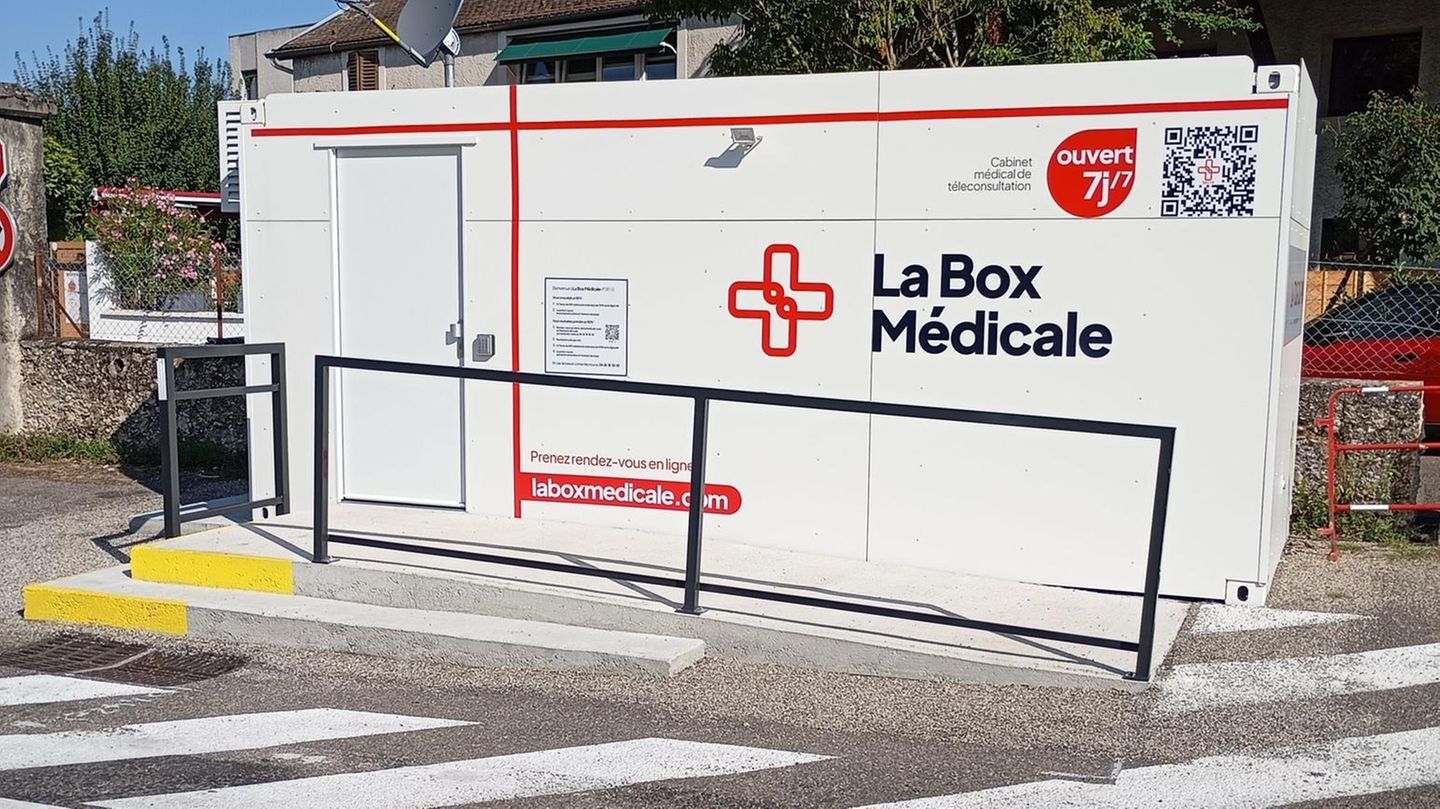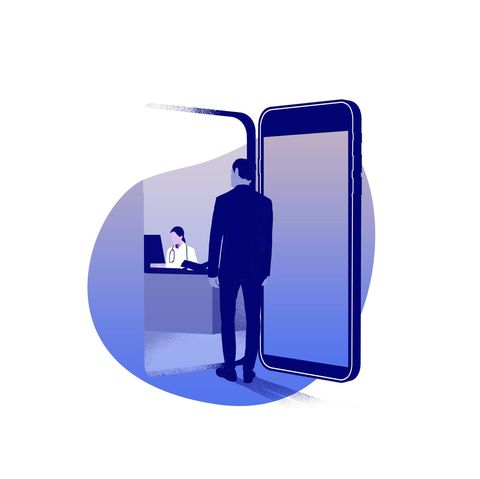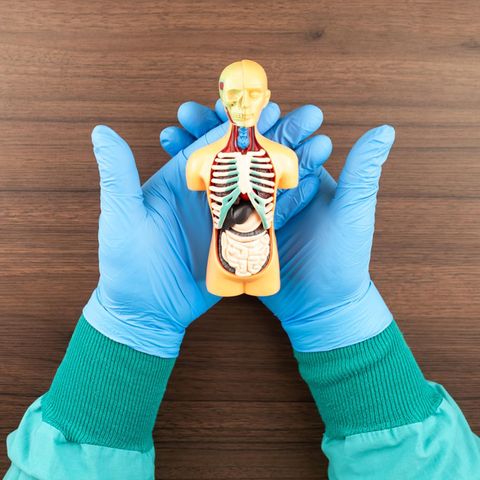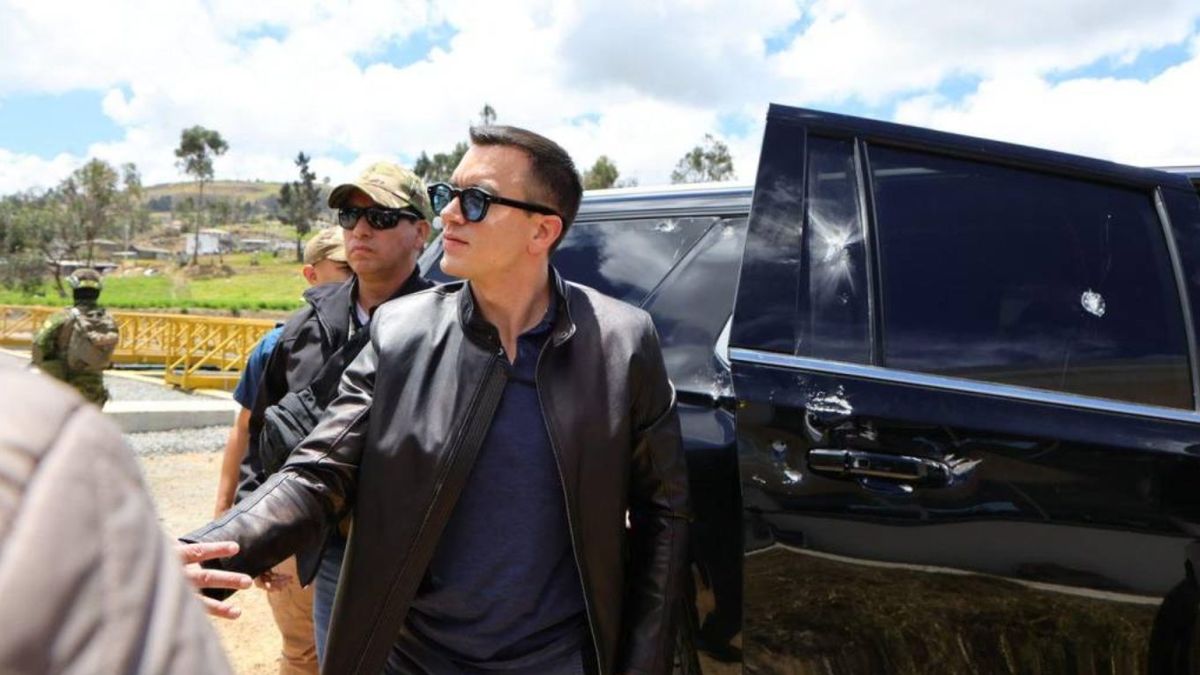Box Médicale
Sick Frenchmen just go into the box
Copy the current link
Add to the memorial list
The “Box Médicale “replaces the doctor in France if nobody is available. This should help against the lack of medical documents, especially in rural areas.
In France is currently making a high-tech box for examinations of patients headlines: cabins with medical devices and medical video advice are on the rise as an alternative to the classic medical practice in rural communities in our neighboring country. In the rooms, people can not only lead a video call with a doctor, but also have a station with medical devices that can be used for examination during the consultation.
By January, the number of medical boxes of the company “Box Médicale” should be almost tenfolds – from currently 12 to 100 pieces, is distributed throughout France, reports the manager, Sébastien TOCHAIS, the German press agency (dpa). The boxes are supposed to help communities that have to deal with a lack of doctors.
In the case of “” Box Médicale “” “simple, walk -in white containers. Several companies in France offer the devices for televisites, such as Tessan or Medadom. They also have smaller cabins on offer that resemble telephone booths and, for example, in Pharmacies can be placed.
“Box Médicale” should help against a shortage of doctors in France
In rural areas, access to medical advice is difficult for every third, as the National Statistics Authority insee reported last year. Also in Germany If doctors are missing: According to Bertelsmann Foundation, more than 5,000 household seats are not occupied. The number will even double in the next five years.
In the small French community of Saint-Georges-Motel with 880 inhabitants, the box has been around since April. “It’s a huge success,” says Mayor Jean-Louis Guirlin the dpa. The feedback from users is very positive. The box is open every day from 8 a.m. to 8 p.m. except on public holidays. Dates can be booked by phone, online or via a QR code using a smartphone. Two to three consultations are currently being carried out per day. He also came to consultations, reports the mayor.
Inside the container there are a chair and a station with a screen as well as the medical instruments: thermometer, blood pressure meter, oximeter, dermatoscope, ear levels and stethoscope. A resident explains in a contribution by the French broadcaster TF1: “You only have to follow the instructions and insert your health insurance card.” Then questions were asked and tests were carried out, a recipe was issued at the end. “This is quick and efficient,” said the man.
Thorough disinfection after each visit
After each consultation, the space and devices are automatically disinfected with germicidal UV-C rays. This is an advantage because there is no risk of infection between patients in epidemics like flu, as usual in the waiting room of practices, explains Mayor Guirlin. According to Guirlin, the purchase of the medical box cost 50,000 euros. The municipality also pays 6000 euros per year for the company.
According to TOCHAIS, his company plans to expand in the rest of Europe in three years – but different regulatory requirements have to be observed. Simply using a “clone” of the medical box from France in other countries does not work, the manager explains.
From an ethical point of view, there is no objection to the fact that increasingly new technologies are used in the relationship with doctors, says medical ethicist Urban Wiesing. However, it must be researched whether people are really better and challenges such as the preservation of informational self -determination or inaccuracies in diagnoses. “Medicine should use and not harm,” said Wiesing.
The French umbrella organization for patient associations (France Assos Santé) emphasizes that telephone cabins “offer a medical service that is quite limited”. There is no direct transfer to specialists who could personally see, operate or look after the patients in person if necessary – the treatment as soon as the computer screen goes out. This is difficult, for example, for chronically ill people. The boxes could then not offer proper added value, but would only cost money.
The association therefore demands that the boxes are drawn up in close coordination with other health players in the region and that there is a connection to the regional care structure.
Dpa
bung
Source: Stern
I’m Caroline, a journalist and author for 24 Hours Worlds. I specialize in health-related news and stories, bringing real-world impact to readers across the globe. With my experience in journalism and writing in both print and online formats, I strive to provide reliable information that resonates with audiences from all walks of life.






